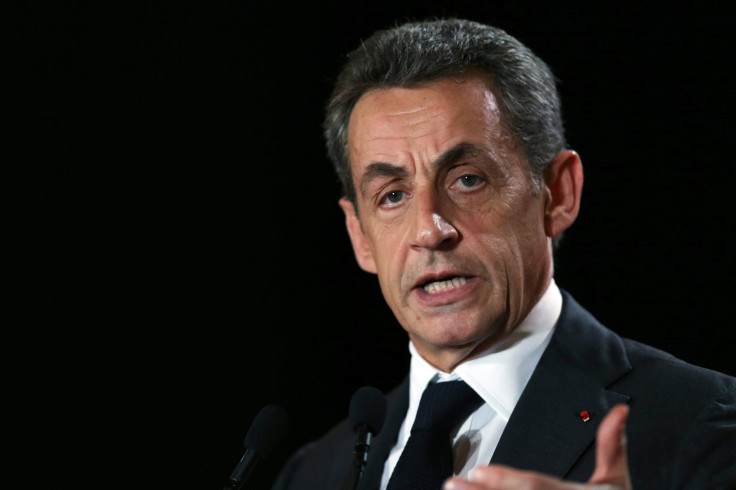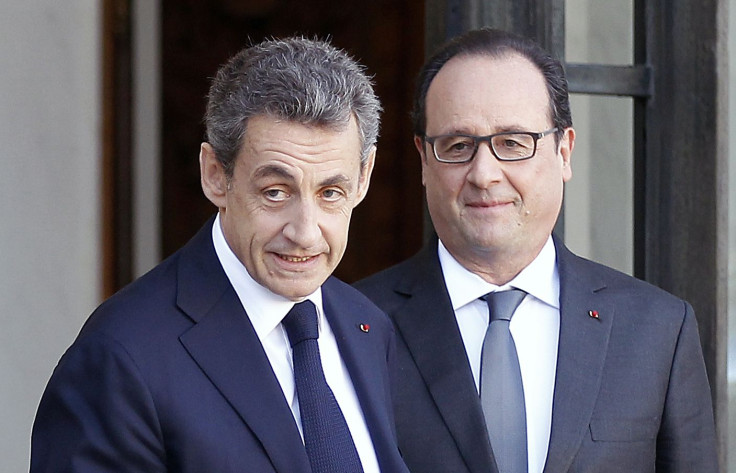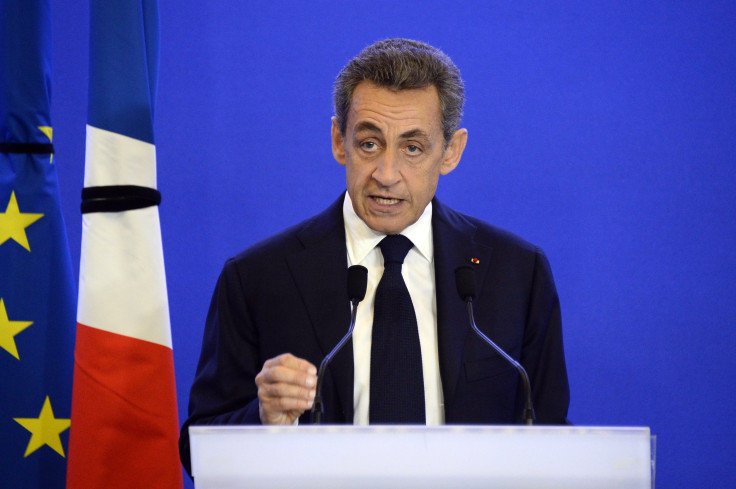France Election Results 2015: Why Nicolas Sarkozy Won't Become President After The Paris Attacks

After having mostly disappeared from public life after losing the 2012 presidential elections, former French President Nicolas Sarkozy has in recent weeks suddenly become a ubiquitous public figure, appearing in televised interviews and at rallies promising to defend a nation rocked by a mass shooting last month that left 130 dead.
His sudden re-emergence comes as France prepares to hold regional elections Sunday and signals broader political ambitions as Sarkozy and his center-right Republicans Party are looking to make a comeback by offering a tempered version of the far-right stance represented by conservative leader Marine Le Pen and her anti-immigrant National Front Party. With citizens tired of traditional leadership, however, Sarkozy's promises of strict border control and protection for the French way of life may not be enough to bring the former president back into the political forefront as he angles to win back the presidency in 2017, political experts said.
“A large part of those who voted for Sarkozy in 2012 are now voting for Marine Le Pen,” said Madani Cheurfa, a political scientist at Sciences Politiques, a top university in Paris. He described the appeal of the National Front as an alternative to the status quo of traditional parties, with a platform that can be summed up as: “You’ve tried the left and the right, and they didn’t work. Try us.”

France's regional elections often serve as a barometer for general elections, and with Sarkozy aiming for another shot at the presidency in 2017, he has tried to recast his party as a moderate alternative to other right-wing groups. In the wake of the Nov. 13 attacks carried out by Islamic State group supporters across Paris, Sarkozy returned to the public stage, making headlines for comments on the need to defend France, as he tried to situate his party as a stronger alternative to the ruling Socialist Party.
"The terrorists have declared war on France," he said immediately after the Friday night mass shootings at several entertainment venues in Paris. In another speech, he warned: "This is only the beginning of the storm."
Sarkozy quit politics after losing the 2012 presidential election to current President François Hollande, quietly returning to political life in 2014 to retake leadership of his party. During his tenure as president, his policies included economic liberalism, strong executive powers and a willingness for foreign intervention.
Sarkozy has made clear his intention to run for president again in 2017, and while he is not running for a position in the regional elections, he has been campaigning for his party's candidates throughout the country to strengthen their image.
Despite a mounting challenge from Le Pen, Sarkozy announced Wednesday that his party would not ally with the Socialists in opposition to the National Front, as Socialist Prime Minister Manuel Valls had suggested. Sarkozy said although he has "nothing to do with the National Front, ... I also fight the Socialists' policies," Reuters reported.
Surveys published Sunday from the French polling organization BVA predicted the National Front, which has never won a majority in a region, will win at least two, if not three, of the 13 regions in France. Sarkozy's party, which six months ago was poised to capture a majority of the 13 regions, is slated to win only four, according to the same poll. Ruling parties statistically fare badly in France's regional elections, and Hollande's socialist party is slated to win only three regions. Hollande saw a recent bump in polls because of his leadership after the Paris attacks, and that boost may allow the Socialists to capture contests that were expected to be particularly close.

The mass shooting was a missed opportunity for Sarkozy to rebrand himself and his party ahead of the presidential elections, said Charles Lichfield, an analyst studying Western Europe for the Eurasia group, a political risk consulting firm based in London. “There would have been a space for them to say that they’re more competent than the center-left and more reasonable than the far right," but "they’re too disorganized,” he said, adding, “Sarkozy himself has been very childish during this whole thing; he’s shot from the hip.”
Among some of the ideas that have not played well with the public, Sarkozy proposed that thousands of people who were marked as potential security risks by the French government be detained indefinitely to prevent terrorism from happening.
Sarkozy's presidential campaign faces other challenges, namely the perception in many of the working-class regions of France that he is part of the ruling elite. The National Front has gained support particularly in the Calais region, where unemployment is several percentage points higher than the rest of France and local budgets have been strained by the presence of a large refugee camp near the northernmost border of the region.

“[The National Front] has a discourse that addresses itself to a population who feels abandoned,” said Béatrice Giblin, a French political expert at the French Institute of Geopolitics, an institution of higher learning based in Paris. “There is a very real disillusionment with the traditional parties,” she said.
Le Pen and her far-right anti-immigrant National Front party have benefited the most from the Paris attacks, with a 4-7 percent bump in support. Le Pen had long preached a closed border policy with neighboring European countries and an anti-Muslim stance on immigration, and her popularity grew after the Paris attacks were discovered to be organized by the Islamic terrorist group also known as ISIS or Daesh.
“Often there is this trauma after these type of events, where we live in fear that it could come back at any moment, anywhere,” Cheurfa said. “People are looking for authority."
Regardless of Sunday's election results, Sarkozy will need to persuade French voters he represents their interests if he hopes to return to the presidency.
"He has to concentrate on developing a narrative that transcends [Marine Le Pen's] and keeps hold of the center," said John Gaffney, author of "Political Leadership in France: From Charles de Gaulle to Nicolas Sarkozy," in an email interview Wednesday. "He can do it, but he's got to start doing it now."
© Copyright IBTimes 2024. All rights reserved.












